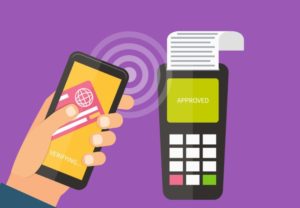IDEMIA is highlighting some of the ways in which mobile money services can reduce the size of the world’s unbanked population. The company noted that the world still has roughly 1.7 billion unbanked adults, which means that a full 33 percent of those eligible still do not have access to services like savings and deposits.

However, IDEMIA noted that the situation has improved in the past decade. More than half (51 percent) of the population was unbanked in 2011, and that number has steadily dropped thanks to innovations like mobile money. IDEMIA argued that mobile money is particularly useful because it gives people a safe alternative to cash. Many people do not have access to a traditional brick-and-mortar bank, and can therefore only store cash in their own home.
Mobile money services, on the other hand, allow people to turn cash into mobile credits at non-traditional outlets such as grocery stores. That, in turn, gives them a safe way to start accumulating wealth, using a mobile device to gain access to financial services. In Kenya, for example, the banked population jumped from 27 to 75 percent in the ten years after the introduction of the M-Pesa mobile money service, which was launched in 2007.
The introduction of contactless payment cards should accelerate that process, because they will allow people to complete transactions and spend their mobile credits at a larger number of locations. To that end, mobile money providers are entering into card partnerships with established giants like Mastercard and Visa to make sure their customers can make payments anywhere those cards are accepted. Doing so negates the need to form an independent partnership with each merchant and service provider.
As it stands, around $17 trillion worth of payments are made with cash every single year. IDEMIA indicated that reducing that figure would have major benefits for the economy because it would raise inclusion, remove friction, and boost spending and job creation.
“Replacing cash with card payments doesn’t just make the everyday life of consumers easier, it also fosters economic prosperity,” said IDEMIA Financial Institutions Marketing VP Jesper Domargård.
IDEMIA recently partnered with the digital TymeBank to bring contactless payment cards to South Africa. The company has also received an EMVCo ICCN security certificate for the secure chip of its biometric card solution.

Follow Us